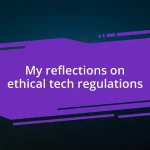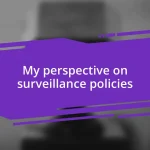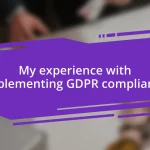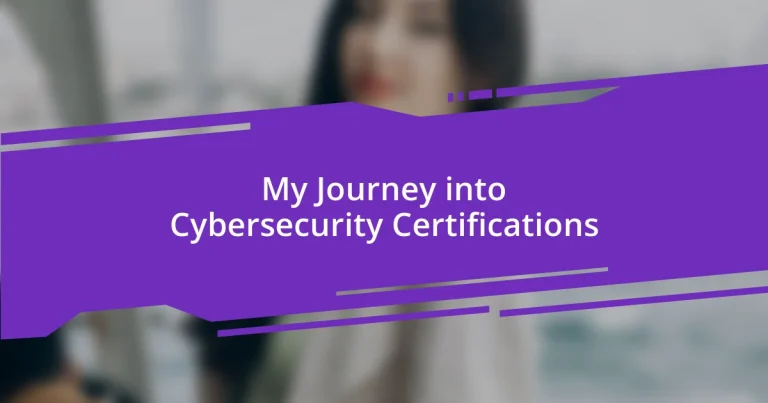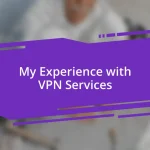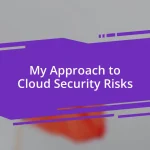Key takeaways:
- Cybersecurity certifications validate skills and knowledge, enhancing career credibility and opening new opportunities.
- Choosing the right certification should align with personal interests, career aspirations, and industry demand.
- Continuous learning and specialization in emerging technologies are crucial for adapting to the evolving cybersecurity landscape.
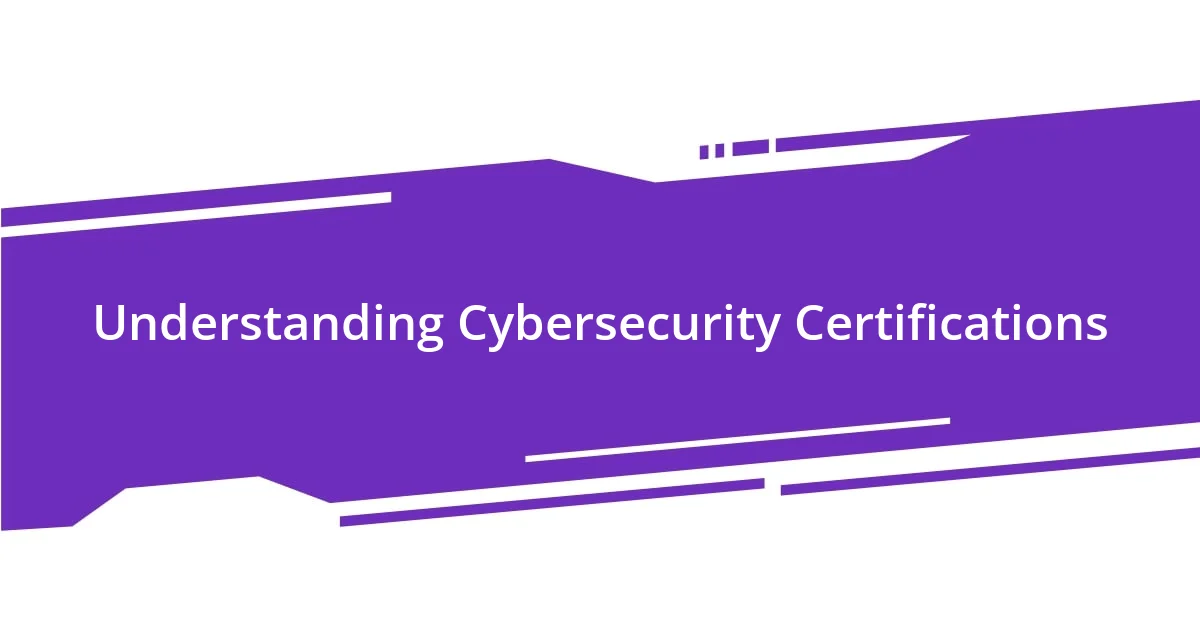
Understanding Cybersecurity Certifications
Cybersecurity certifications serve as critical benchmarks in a professional’s journey, validating skills and knowledge in a rapidly evolving field. I remember feeling a mix of excitement and anxiety before earning my first certification—CompTIA Security+. It wasn’t just a piece of paper; it marked a significant milestone that boosted my confidence and opened new doors.
Delving into the world of certifications can feel a bit overwhelming at first. With so many options available, how do you choose the right one for your career path? Reflecting on my own journey, I found that aligning my certification choices with my interests—like ethical hacking versus network security—made a huge difference in my learning experience and motivation.
Each certification comes with its own set of challenges and requirements, which can sometimes feel daunting. I recall countless late nights spent studying for the Certified Information Systems Security Professional (CISSP) exam, yet every effort was worth it. The satisfaction of passing that exam gave me a great sense of accomplishment and enhanced my credibility in the cybersecurity arena. Isn’t it fulfilling to achieve something that once seemed out of reach?
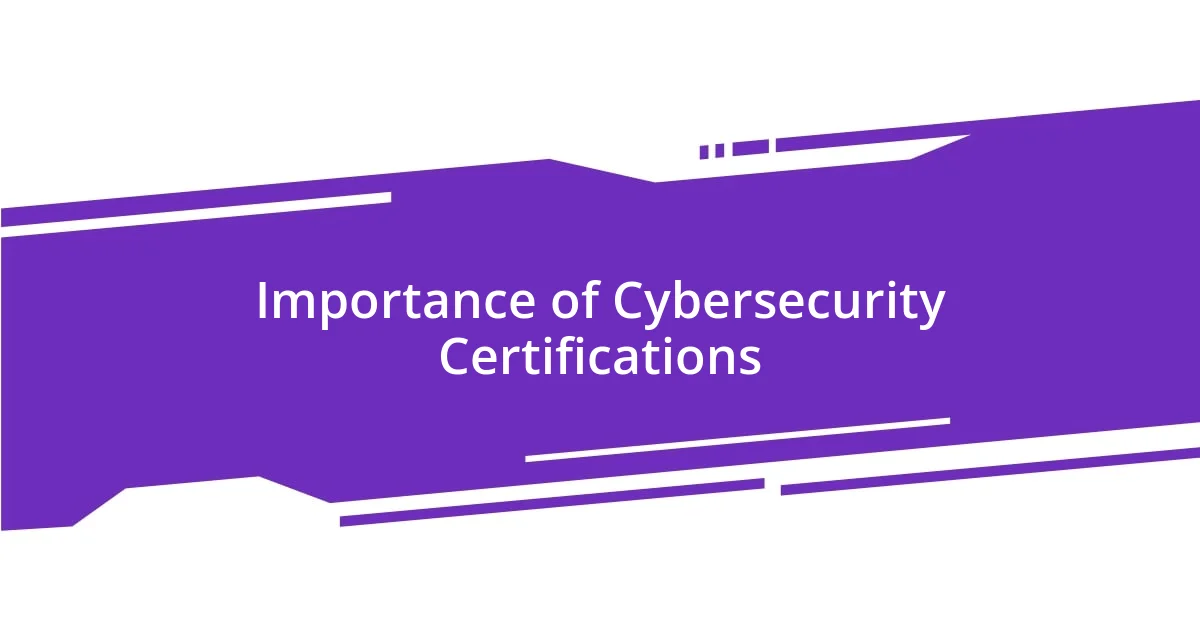
Importance of Cybersecurity Certifications
Cybersecurity certifications are not just a box to check on a resume; they signify a commitment to professionalism and a deep understanding of the field. I vividly remember the day I received my Certified Ethical Hacker (CEH) certification. It gave me a sense of validation, knowing I had not just memorized concepts but truly understood how to think like a hacker. That feeling of being recognized for your expertise is invaluable and can significantly enhance your career prospects.
Another layer of importance lies in the way certifications establish credibility. Employers often rely on certifications as a shorthand for gauging a candidate’s skills. I was once in an interview where the hiring manager pointed out my Certified Information Security Manager (CISM) credential as a key factor in their decision-making process. It was a reminder of how these credentials can set you apart in a competitive job market. Well-structured certifications allow professionals to stand out from the crowd, showcasing their dedication and knowledge.
Finally, the learning journey that accompanies obtaining these certifications should not be underestimated. Each study session is an opportunity to dive deeper into critical topics, like threat management or cloud security. I can still remember the adrenaline rush I felt when I finally grasped the complexities of risk assessment—something that had initially bewildered me. The skills you acquire and refine through this process not only prepare you for exams but also for real-world challenges in cybersecurity operations.
| Certification | Importance |
|---|---|
| CompTIA Security+ | Entry-level benchmark for understanding fundamental security concepts. |
| CISSP | Validates advanced knowledge and experience in designing and managing security programs. |
| CEH | Demonstrates expertise in ethical hacking and threat assessment, critical for defensive strategies. |
| CISM | Recognizes a professional’s management skills in information security, enhancing leadership opportunities. |
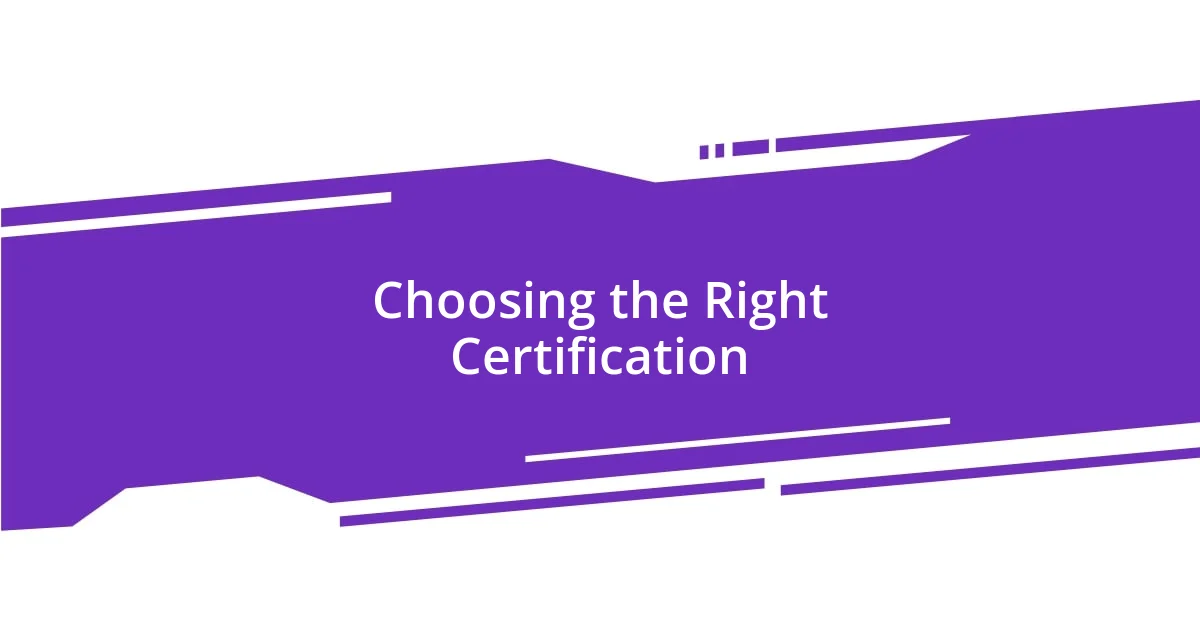
Choosing the Right Certification
Selecting the right certification can genuinely shape your career trajectory in cybersecurity. Throughout my journey, I realized that my choices needed to resonate with my personal interests and career aspirations. For example, when I opted for the Certified Information Systems Auditor (CISA), I wasn’t just chasing a credential—I was passionate about understanding the audit aspects of security. I can still recall the sense of purpose I felt while preparing, knowing that this certification aligned perfectly with my career goals.
Here are some key factors to consider when choosing your certification:
- Career Goals: Identify where you want to go in your cybersecurity career. Is it penetration testing, compliance, or perhaps information security management?
- Industry Demand: Research which certifications are highly valued in the job market. I often consulted job postings to see which credentials employers sought most.
- Certification Difficulty: Each certification varies in complexity. Assess if you’re ready for a challenging certification like the CISSP or if a foundational one like CompTIA Security+ is suitable.
- Learning Style: Choose certifications that complement your preferred studying method—whether that’s hands-on labs or traditional textbooks, align your certification path with how you learn best.
- Community and Support: Engage with online forums and communities. I found invaluable resources and mentorship in cybersecurity groups, which helped me navigate my certification journey.
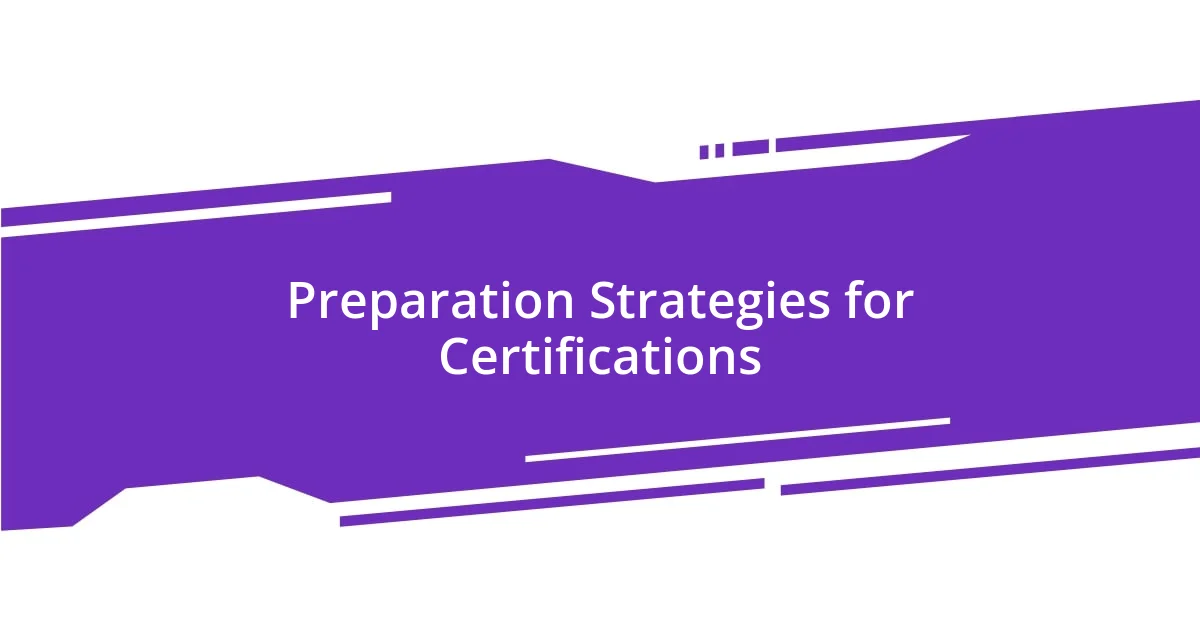
Preparation Strategies for Certifications
Preparation for cybersecurity certifications is not just about hitting the books; it’s about finding the methods that work best for you. I remember when I was preparing for my CEH exam, I crafted a study schedule that broke down topics into manageable chunks. This allowed me to focus on one concept at a time without feeling overwhelmed. Have you tried this approach? It really makes the material feel less daunting and helps it stick in your mind.
Diving deeper into practical exercises is equally important. During my preparation, I enrolled in a hands-on lab that simulated real-world hacking scenarios. There’s something incredibly rewarding about putting theory into practice. This experiential learning solidified my understanding and made the concepts feel more relevant. Don’t you find it easier to recall information when you’ve applied it rather than just read about it? I definitely do.
Lastly, seeking out a study group or community can make a significant difference. I joined an online forum with fellow exam takers, and sharing insights and challenges was invaluable. It brought an element of accountability, too. If I ever felt stuck or demotivated, simply discussing it with others kept me engaged. Have you thought about how collaboration could enrich your study journey? Trust me, those connections might just be the support you need to push through!
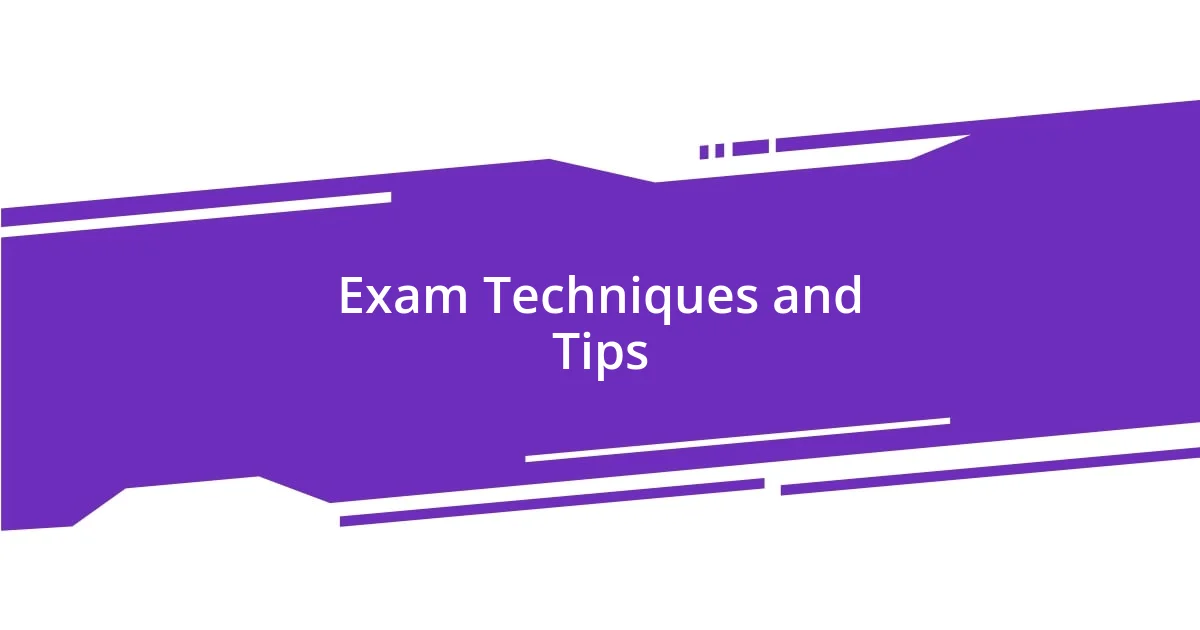
Exam Techniques and Tips
When it comes to exam techniques, time management is crucial. During my first certification exam, I was overwhelmed by the ticking clock. I remember glancing at the timer, which instantly doubled my anxiety. Now, I always allocate time to each section based on the number of questions and stick to it. Have you practiced this? Adjusting your pace can really prevent those last-minute panics.
Another technique that’s often overlooked is the power of practice exams. I still recall my first attempt at a practice test for the CISSP—it was eye-opening! Not only did they highlight my weak areas, but they also helped me familiarize myself with the exam format. It’s like training for a race; can you imagine running without knowing the track? Doing mock exams certainly builds that confidence and reduces surprises on the big day.
Lastly, don’t underestimate the role of a calm mindset. I vividly remember the morning of my CEH exam, when I took a moment to meditate and breathe deeply. This simple act put me in a focused state, almost like clearing the mental clutter. Have you ever tried relaxation techniques before a big test? Finding what calms your nerves can make a world of difference in your performance.
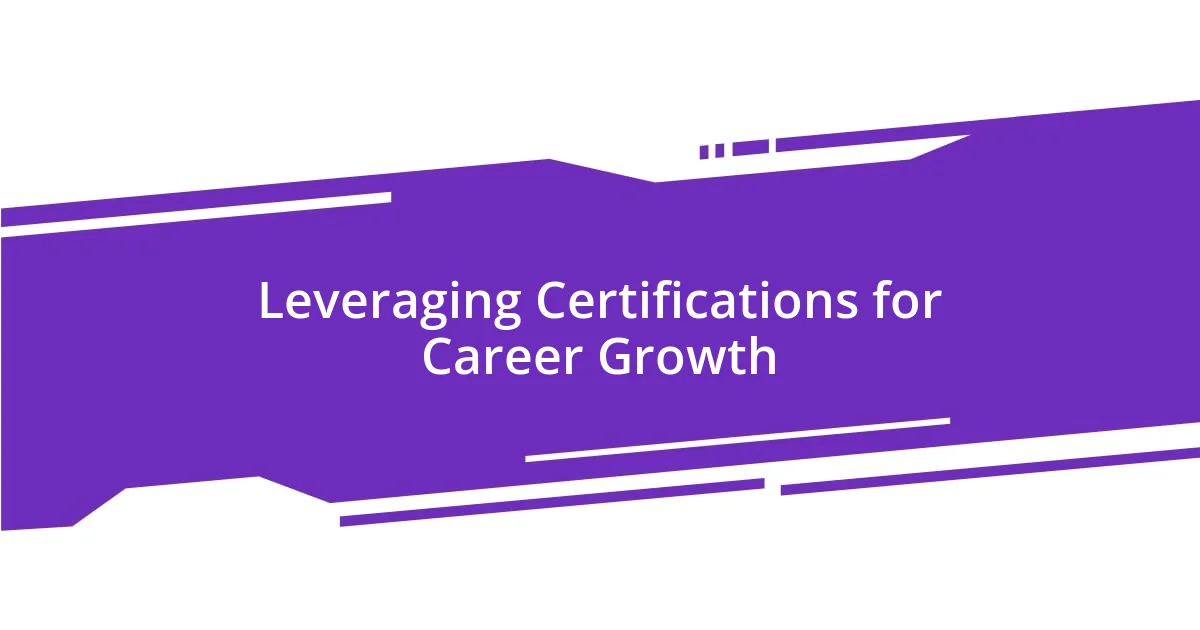
Leveraging Certifications for Career Growth
Leveraging certifications can be a game-changer in your career trajectory. I remember when I earned my Security+ certification—it didn’t just boost my confidence; it also landed me an interview for a role I had thought was out of reach. Have you considered how certification can open doors that once seemed closed? It’s incredible how adding a few letters after your name can create new opportunities and visibility in your field.
Networking plays a pivotal role in leveraging certifications effectively. After I completed my CEH, I attended industry conferences specifically to meet fellow professionals. I still recall striking up a conversation with someone who later became a vital contact in my job search. Do you think networking could enhance your career prospects? Building those relationships is essential; you never know when a connection might lead to your next job offer or project.
Moreover, showcasing your certifications on platforms like LinkedIn can significantly enhance your professional presence. I once received unexpected messages from recruiters simply because I’d updated my profile with my latest achievements. Have you tapped into the power of social media for career advancement? It’s fascinating how visibility can translate into opportunities, making it worthwhile to showcase your certifications boldly.
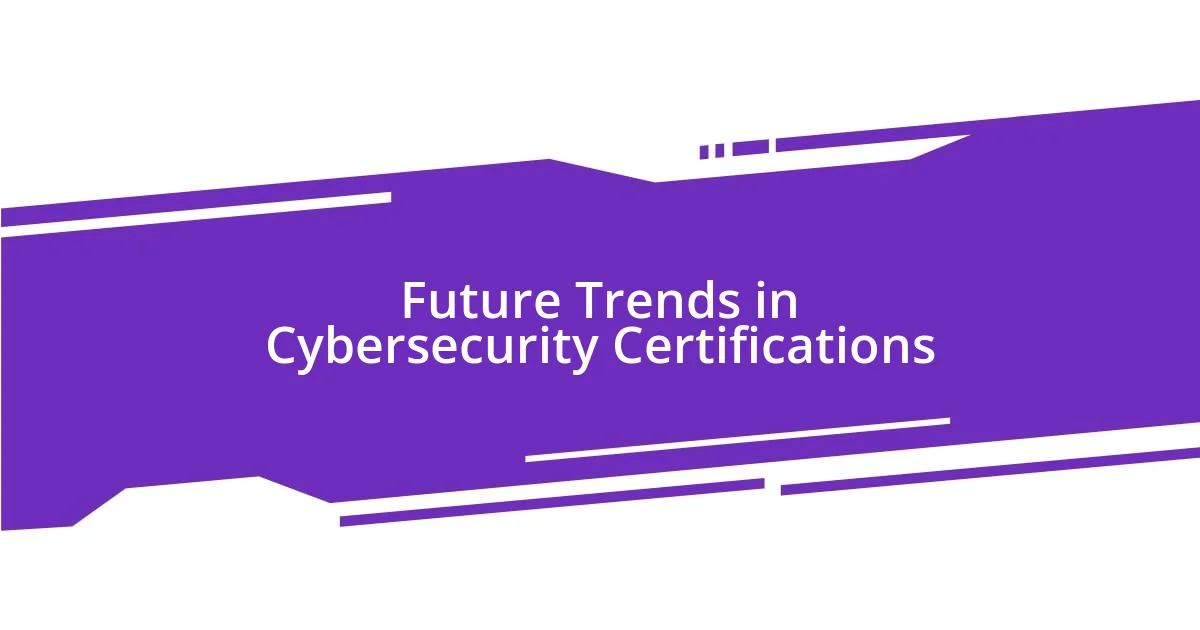
Future Trends in Cybersecurity Certifications
As I look toward the future of cybersecurity certifications, I find an increasing emphasis on continuous learning. The field evolves rapidly, and many employers are shifting their focus towards candidates who prioritize ongoing education. I remember feeling overwhelmed when I first encountered this idea—it seemed daunting. But have you thought about how this could position you as a forward-thinking professional? Engaging in lifelong learning can truly set you apart in such a dynamic industry.
Emerging technologies like artificial intelligence (AI) and machine learning are also influencing certification requirements. I’ve noticed that new programs often integrate these technologies into their curricula, which really excited me. It’s not just about securing systems anymore; it’s about understanding how threats evolve alongside these advancements. Are you ready to embrace this change? Adapting to such trends can significantly enhance your expertise and marketability.
Additionally, specialization is becoming essential in cybersecurity certifications. Reflecting on my journey, I now see how narrowly focused certifications have helped me dive deeper into specific areas, like cloud security or incident response. It’s like honing your skills like a maestro in a symphony—do you think identifying your niche can elevate your career? With organizations constantly seeking specialists, aligning yourself with a specific domain can open countless doors and opportunities.




